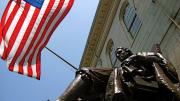College Admissions Challenges
In late june, the U.S. Supreme Court upheld the limited use of race in admissions decisions, ruling in its second pass at Fisher v. University of Texas at Austin that properly constrained processes for reviewing applicants pass constitutional muster. Harvard had filed a brief in support of upholding the Texas procedures. (Read an analysis at harvardmag.com/fishercase-16.)
This is the third time the court has ruled on public institutions’ consideration of race in admissions (following the 1978 Bakke and 2003 Grutter decisions). These rulings would seem to establish, nationwide, the principles underlying consideration of applicants’ broad qualifications, going beyond single metrics such as grade-point average or standardized-test scores. But some analysts think the issues remain subject to further legal challenge. Writing for The Chronicle of Higher Education, Mark G. Yudof (former president of the University of California and the University of Minnesota, and chancellor of the University of Texas at Austin) and Rachel F. Moran (dean emerita at UCLA School of Law) observed that “the patchwork of state approaches to affirmative action will persist, and every program of college admissions that treats race as a factor will be judged on its particular facts. Like [Justice] Powell before him [in Bakke], Justice Kennedy has left the courthouse door open to future litigation, even at the University of Texas” in his Fisher decision. Given an Inside Higher Education-Gallup poll finding soon after that ruling (majorities opposed any consideration of gender, race or ethnicity, or legacy status in admissions)—such challenges seem likely.
At least one such action—the 2014 Project on Fair Representation/Students for Fair Admissions (SFFA) lawsuit alleging that Harvard discriminates against Asian Americans—continues. (Background on the case appears at harvardmag.com/sffa-16.) That suit, filed under Title VI of the Civil Rights Act of 1964—therefore applicable to a private entity—asserts that “the proper judicial response” is “the outright prohibition of racial preferences in university admissions—period.” Activity associated with the suit had been deferred pending the Fisher decision; it has now resumed.
The SFFA case claims that Bakke was wrongly decided (an argument likely weakened after Fisher); that even if Bakke is the law, Harvard violates it by considering race too heavily in undergraduate admissions; and that the College imposes an illegal quota on Asian-American applicants. SFFA filed a similar action against the University of North Carolina.
A protracted period of discovery likely lies ahead. Making the second and third claims will depend on securing access to aggregate admissions data, and perhaps to individual records; Harvard will surely object strongly to the latter, given that applicants expected their information to remain confidential. The University may also challenge SFFA’s standing to press its claims, since it has not, so far, identified claimants who’ve applied for admission or intend to. In case the lawsuit proceeds to trial, Harvard’s legal team now includes both Seth P. Waxman, former U.S. solicitor general, an appellate expert, and Corporation senior fellow, William F. Lee, a distinguished trial lawyer (and the University’s highest-ranking Asian-American governing official).
Elsewhere, the Asian American Coalition for Education asked the departments of education and justice on May 23 to investigate alleged discrimination at Brown, Dartmouth, and Yale—and require Ivy League colleges to cease engaging in admissions practices that it maintains are discriminatory. The institutions “apply racist stereotypes and racial bias in their ‘holistic’ evaluation of Asian-American candidates” and “maintain a racial balance of Asian-American enrollment at an artificially low level, imposing an unlawful quota,” according to the complaint. It was countered by a statement from Asian Americans Advancing Justice in support of the institutions’ admissions practices. A similar federal complaint against Harvard was dismissed, in light of the SFFA lawsuit entailing the same issues. Princeton’s admissions practices, also subject to this kind of administrative challenge, were upheld upon federal review.
Delving into Faculty Diversity
Near the end of a year of student protests about diversity on many campuses, Yale’s new Faculty of Arts and Sciences Senate (Harvard has no analogous body) released a significant report on faculty diversity and inclusivity. It found that after progress in diversifying faculty ranks from 1999 to 2007, Yale suffered a “lost decade” under the pressure of financial constraint—with particularly severe effects on the retention of underrepresented minority and junior faculty members. The report made 19 recommendations, ranging from a clear institutional commitment to fostering faculty and curricular diversity, to disseminating better data and performance metrics, and targeting Yale’s $25-million fund to match departmental diversity initiatives. Survey research revealed much higher levels of dissatisfaction among faculty members who are women or underrepresented minorities. That finding is consistent with “climate” surveys conducted at Harvard and elsewhere (see “How the Faculty Feels,” September-October 2014, page 21)—reflecting family-care demands, burdens of committee and other academic service, and relatively small peer cohorts.
Achieving sustained gains in diversity has proven difficult during a period of restrained growth. Data compiled by Harvard’s senior vice provost for faculty development and diversity show that the tenured ranks have become steadily, if sometimes modestly, more diverse from academic year 2006 through 2016—but that in the junior (tenure-track) ranks, the underrepresented minority share has risen only one percentage point (to 11 percent) during that period.









